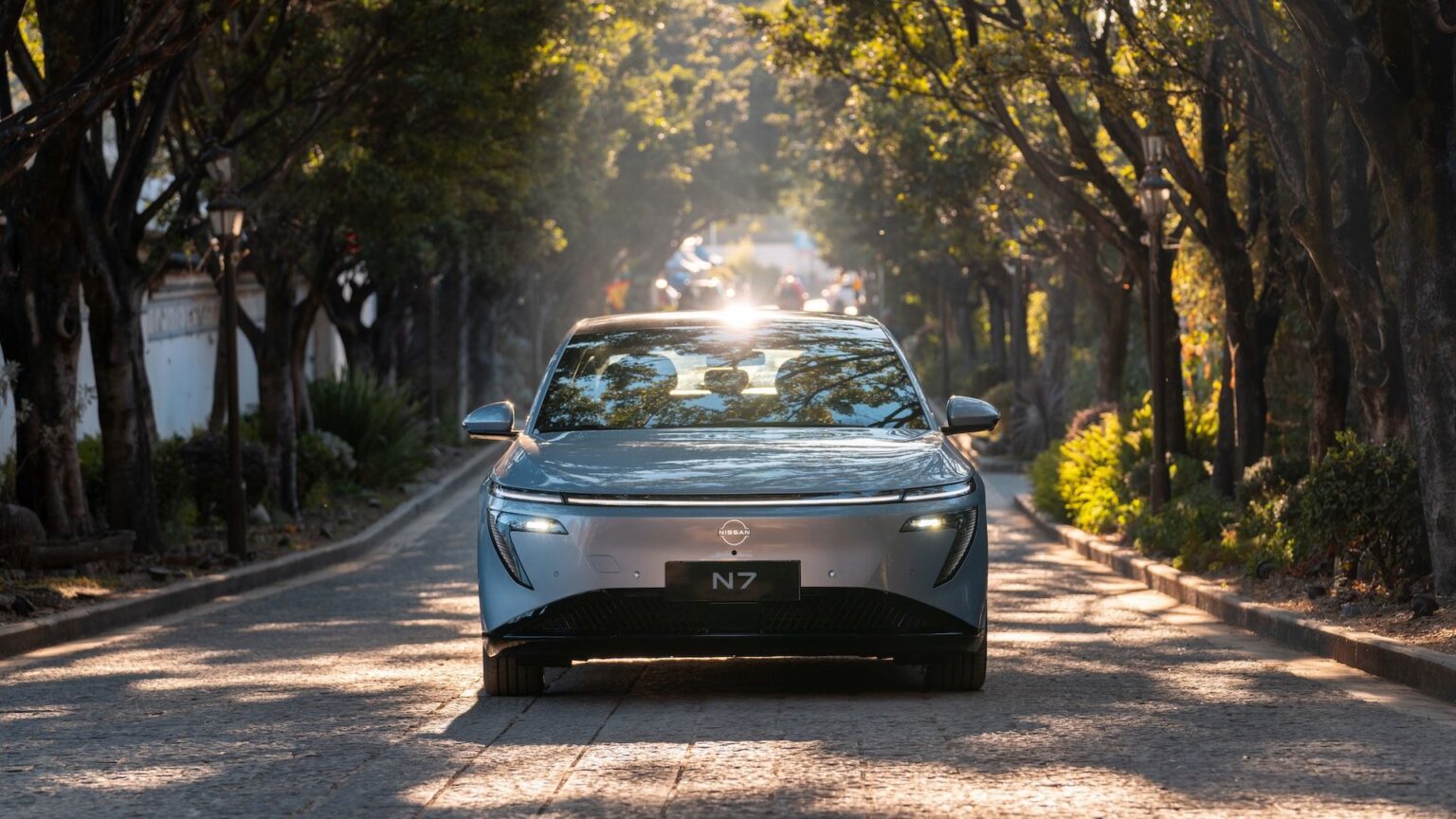Nissan has been making a few headlines lately. The brand unveiled a new Leaf EV and teased a forthcoming product roadmap. Nissan also all but confirmed that the next-generation Frontier pickup will get a PHEV, and then unveiled a different Frontier PHEV in China. And we now have some more news on the future Nissan product front. The brand has killed development on a pair of electric sedans.
Key Takeaways
- Nissan has canceled two electric sedans
- The sedans, a Nissan and an Infiniti, were initially due to launch in 2026
- Instead, Nissan will launch new EV crossovers in 2028
- Nissan will also build a third, yet-to-be-named EV
- Tariffs may exacerbate an already perilous financial situation for Nissan
Nissan Killed Off Two Planned Electric Sedans
According to Automotive News, Nissan sent a memo to suppliers on April 21st confirming that it had killed two electric sedans that were in development. Nissan would have produced versions for itself and Infiniti as effective EV replacements for the Maxima and Q50 sedans at its plant in Canton, MS. Nissan initially had those sedans scheduled to arrive in late 2026. But those plans had been put on hold to prioritize getting electric crossovers to market.
What New EVs Is Nissan Planning?
Per the memo, Nissan has two new electric crossovers arriving. The Nissan-branded version is the boxy SUV that prompted new Xterra speculation. It has been delayed until January 2028. An Infiniti version, targeting more upscale luxury buyers, will follow in May 2028. Both SUVs are expected to have a longer wheelbase than the Rogue and offer Pathfinder-like interior space. Nissan also plans to build a third EV at its Canton plant, but has not specified the vehicle or its production timeline (here’s hoping it’s a new electric pickup).
TopSpeed’s Take
Nissan’s decision to kill off its planned electric sedans isn’t too surprising. Crossovers sell much better than sedans. That’s as true in the EV world — where the Tesla Model Y outsells the Model 3 by a wide margin — as in the combustion one. It’s unclear whether there is a market for $50,000-ish electric sedans from mass-market brands. Volkswagen decided not to bring the ID.7 to the United States earlier this year. A Nissan sedan in that price range may have been an even tougher sell. Nissan does better where it can provide value, such as with the affordable Sentra.
Nissan also isn’t in a financial position to take risks right now. And this is before automakers feel the blowback from vehicle import tariffs. The Japanese brand needs to invest in vehicles that are guaranteed to sell. And if the tariffs remain in place, Nissan and other manufacturers will need to optimize their American manufacturing footprint to protect profitable and strong-selling vehicles. It’s hard to see how that would be low-selling electric sedans.
Read the full article here



